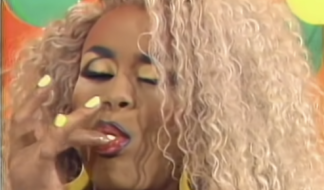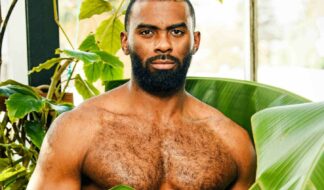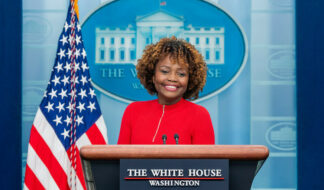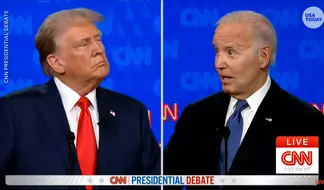On Choosing to Not Choose a 'Chosen Family'
For writer Dani Lamorte, the concept of any kind of family is complicated
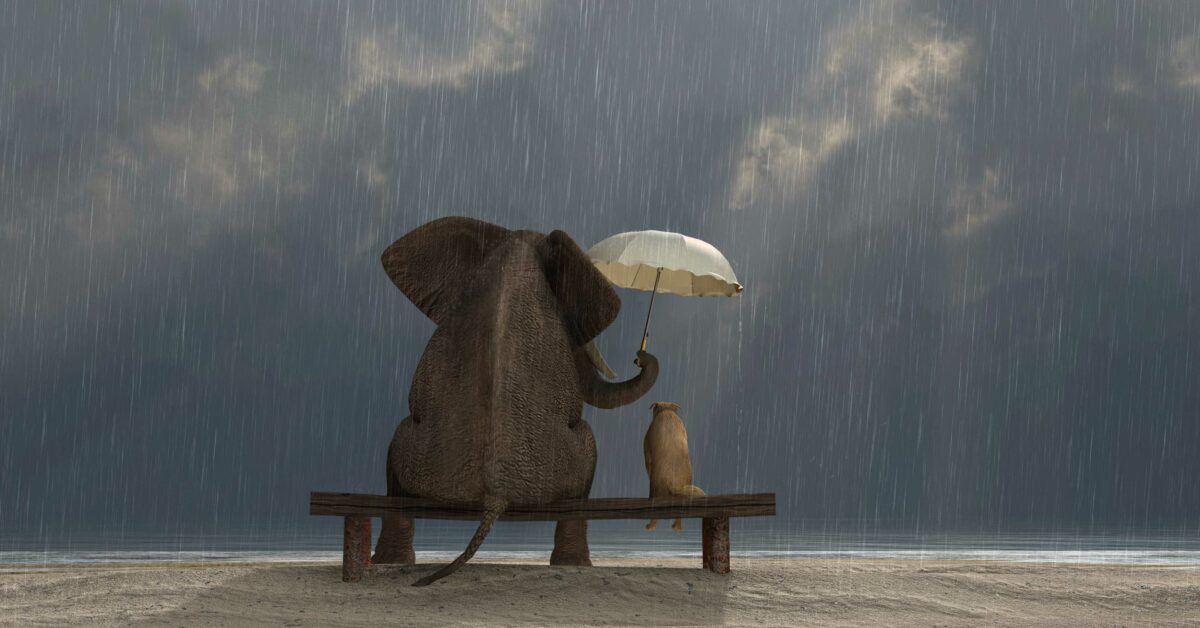
Choosy moms select something. I forget what, if I ever knew, but they choose and that's the American way. We choose our political representatives, or at least we fill out a nifty form with such implications. We choose from nearly identical consumer products, each labeled with spectacular specialness. Women had a right to choose for several decades, but some not-so-choice politicians erroneously saw themselves in clumps of mindless cells and chose to kill the present to save a future that was never on the way. Choice stands in for freedom. Choice, choosing, making things chosen is taken to be a sign that you're free.
Choosing your mom is another matter. Despite conservative jangling about your right to make choices while not-yet-you was still in utero, there's no consensus that you should have a say in who your family is. When people attempt to intervene in biological assignations, we use a frustrated term: chosen family. Chosen, because the family members were consciously selected. Family, because, well, you can't just choose to not have a family at all. Choice has its limits.
Family, as it’s sold, is made of obligations. You call and check in. You help and hold. As it’s sold, all those benefits flow in reverse, too, giving you the support and attention you need. You're obliged to keep the family ever extending, whether that means roping your reluctant spouse into a cookout or trotting all your children to Gam Gam and Pap Pap's for Memorial Day.
If you choose to reduce the size of the family by leaving, perhaps it’s because family has failed. For many LGBTQ+ people, it might be a failure by others in your first family to find lovable, or even tolerable, what you desire. For me, it was an intensely patriarchal tenor that organized the group: adults resenting each other's joys, perennially suspicious of one another's goodwill. Fulfillment and pleasure were taken as cues to ask: “Who do you think you are?"
Family is the original context for our lives. It was decided, without you, that you would be born and would be kept in the family. For adoptees, it was decided you would be brought in, added to the family from elsewhere. You're given a family name, by which schools, churches and governments all index you. The shape of your face and speech mimic the fundamental characters from your early years: mom, dad. Some of us work to change these things, but we have to work to change them. It is not encouraged. I think of family, and I admit to my bias in this, as an injunction. Family says: Don't.
Choices are limited.
Dr. Michael Shulman, an Ann Arbor-based psychologist and psychoanalyst says, “We all have an unconscious mind, which can lead us to find partners, friends and chosen family members who have been modeled on our caregivers in growing up. Often, we choose partners who are not people who bring out the best in us." It’s not self-sabotage exactly, but more of an attempt to repeat a scenario, perhaps to confirm or resolve it. We may also try to repeat good relationships we lost to death, or lost when we opened up about ourselves. Family, chosen or not, is a kind of repetition.
It's no easy thing, choosing to choose. Legally and socially, things are not set up to help you share resources with your neighbor-as-mother or inherit custody of your friend-as-niece's children when she suddenly passes. When was the last time a health insurance company extended "family coverage" to a lesbian-sports-league-teammate-as-sibling? Family is a system for managing property and people-as-property as much as anything else. Choosing to choose a family is not an escape from obligation, but a complication. Some personal sorrow meets indifference from the state. Failure to be seen in one arena leads to invisibility in another.
We might ask if the very idea of family is the trouble. Family is generally seen as goodness. Compare “family” to other group words like "gang," "cult" or "ring." Family seems clean. It's a floating virtue, without a clear history or politics. "'Families' are pure present and always tense," scholar Hortense Spillers writes in her lauded 1987 essay, "Mama's Baby, Papa's Maybe: An American Grammar Book." As Spillers goes on to explain, this sense of the floating, good, present family is an intentional fabrication.
Choice, as it relates to family, has always been a racial matter. Consider anti-miscegenation laws which, for more than a century, made mixed-race heterosexual coupling illegal. Consider also the transatlantic slave trade which made the branches and nodes of family difficult to understand. The rape of enslaved Black women by white enslavers meant that a child may have in one individual both a father and a man who owns them as property. In its multitude of cruel impacts, slavery turned the whole structure of family against Black individuals and communities, made ties to one another uncertain and conflicted. In the midst of this, the legal and social concept of family encouraged the procreation of white generations who inherited wealth, land and networks of enslaved Black individuals who were denied the benefits of the same concept. These brutal histories make it difficult to know just what we mean when we say "family."
If there are multiple meanings — conscious and unconscious — at play when we say "family," I think writing by Judith Butler suggests we might also not know why we're saying "family." In a 2002 article on the gay marriage debates in France, Butler writes that both proponents and detractors treated "Is gay marriage correct?" as the question to be answered. That question took up all the space in the discussion, making it difficult to ask: Why is marriage the answer to our socio-political troubles? Let me borrow from Butler to ask: Why is family, even chosen family, the answer?
I have no family. It's a matter of some choice by me, some choice by others. What I have, instead, are friends. They vary in their closeness to me and how long we've known each other. We do not always agree, and maybe do not always fully support one another. Linkages grow, diminish, change, reform, surprise. My friends are who I turn to when I desperately want to confide in a parent or sibling. At times, I glimpse the kinds of memories and conflicts Dr. Shulman mentions, memories and conflicts I’m reworking with and through.
For all that, I never call them my family. Family is about obligation, and we aren't obliged to love one another. Family is about origins and names, and we know each other beyond and around and against these. Family is about controlling desires and property, and we share freely, maybe foolishly, maybe against the possibility of it all being remembered in traditions or stories.
Family wants to go on forever, in name or deed. Friends want to love right now. I would never choose family over that. Then again, the choice is never quite mine to make.

